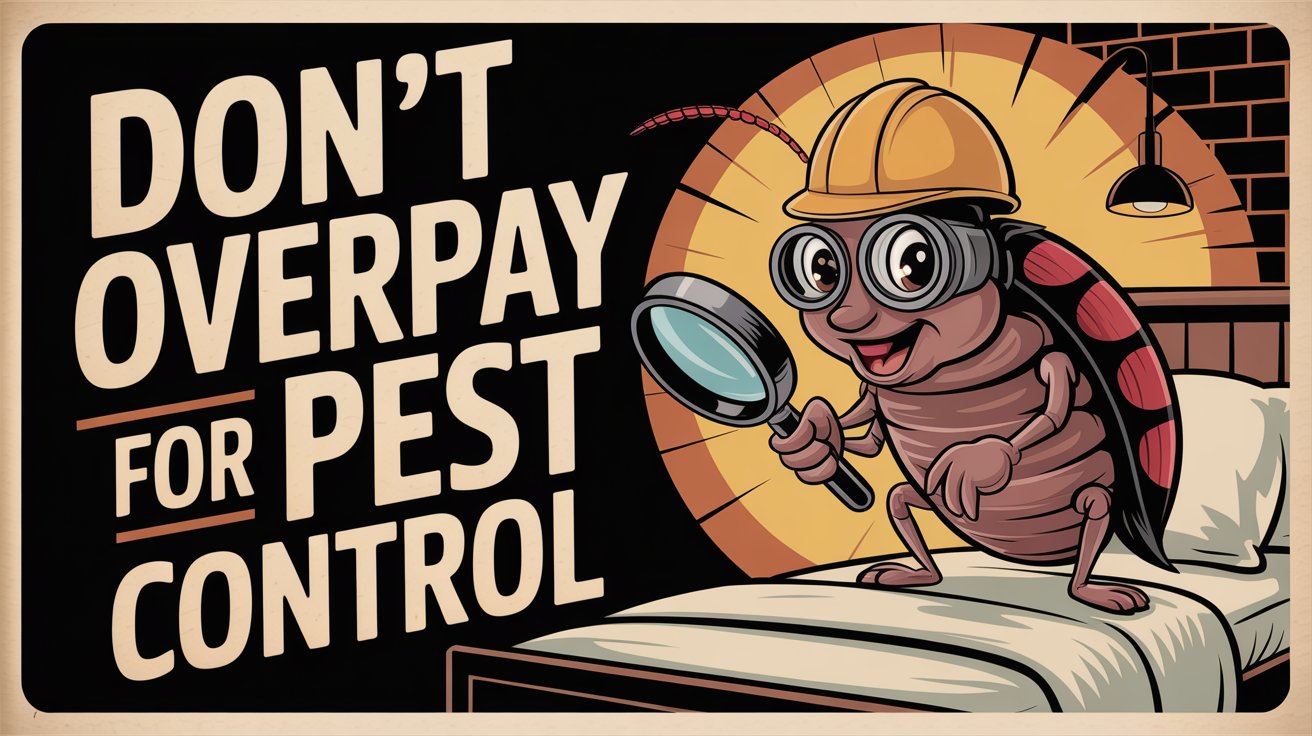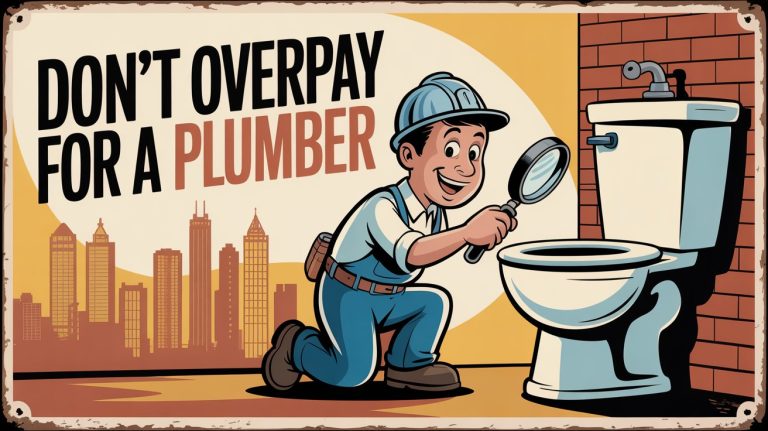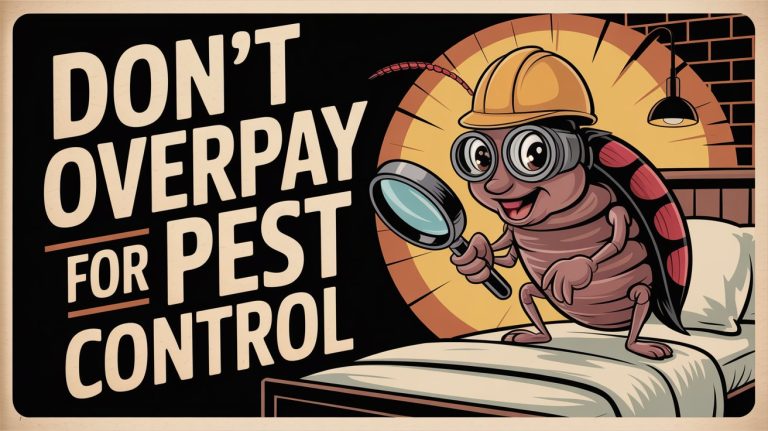
Don't overpay for pest control
I swear, pests should be another one of those 4 letter words! Those unwelcome, tiny roommates who never pay rent, never do the dishes, and occasionally leave droppings that look like miniature modern art. Whether you’re dealing with ants that have staged a coup in your kitchen, spiders that could audition for a horror movie, or rodents plotting to overthrow your pantry, the situation is serious—but your wallet doesn’t have to be. Hiring professional help is often the smartest move, but knowing how to hire a pest control company at the best rate? That’s where true expertise comes in. Lucky for you, I’ve spent decades elbow-deep in traps, sprays, and the occasional “please don’t crawl on me” moment, and I’m here to spill the secrets.
Step 1: Know Your Enemy (and Your Budget)
Before you start calling around like a bug-busting bingo champion, take a moment to assess the situation. Not all pests are created equal, and the type of pest determines the type of treatment and, consequently, the cost.
- Ants and roaches: These are usually the cheapest to treat, but their persistence is legendary. A single treatment may not be enough, so check whether the company offers follow-ups.
- Rodents: Mice and rats require traps, exclusion work, and sometimes a full-on eviction notice. Pricing can be higher here because it’s not just spray—it’s structural work.
- Termites: The special forces of the pest world. Termite control is more like a home renovation than a bug spray session, so expect your wallet to feel the pinch.
Knowing the pest type helps you hire a pest control company that has the right expertise, rather than overpaying for unnecessary services. Also, set a realistic budget. You might find a deal that’s cheap, but if it’s not effective, you’ll pay twice in the long run.
Step 2: Do Your Homework
You wouldn’t let just anyone babysit your dog or fix your roof without checking credentials, right? The same goes for pest control.
- Check reviews and ratings: Google, Yelp, and Angi are goldmines for real customer experiences. Look for patterns—if every review mentions “spray done poorly,” move on.
- Verify licenses and insurance: In many states, pest control companies must be licensed and insured. This protects you from accidental damage and ensures the chemicals they use are safe.
- Ask about guarantees: A reputable company will stand by their work. If they spray today but the bugs return next week, will they come back for free?
By doing this homework, you can avoid companies that lure you in with a low price only to deliver a “guess we tried” approach.
Step 3: Get Multiple Quotes
This is the part where your inner bargain hunter shines. Don’t just call the first company that pops up on Google.
- Call at least three companies and ask for written estimates.
- Compare the scope of service, not just the price. One company might include follow-up visits, while another is charging extra for them.
- Be honest about your pest problem. Vague complaints like “there’s something in the kitchen” might make companies inflate their quotes to cover unknowns.
Pro tip: Some companies will offer seasonal discounts or bundled services. If you’re looking to hire a pest control company for multiple areas of your home, ask if bundling could save you a few bucks.
Step 4: Timing is Everything
Yes, even pest control has its “off-season.” For many pests, late winter or early spring is a sweet spot for treatment—fewer infestations and more availability for companies can mean better rates.
- Early scheduling: Booking your service during off-peak times might get you a discount. Pest control companies are businesses, and like any business, they sometimes offer lower rates to keep technicians busy during slow periods.
- Recurring treatments: Some companies offer subscription-style plans. Paying a small monthly fee could be cheaper than a last-minute emergency call.
Step 5: Negotiate Like a Pro (Without Feeling Bad)
Here’s a little secret: pest control pricing isn’t always set in stone. Companies know you’ll shop around, so don’t hesitate to ask:
- “Are there any current promotions or discounts?”
- “If I book multiple rooms or services at once, can you adjust the price?”
- “Do you price-match competitors?”
A polite inquiry can shave off 10-20% without sacrificing quality. Just remember—if a quote is suspiciously low, it probably comes with strings attached (think hidden fees or cheap chemicals that barely work).
Step 6: Understand What You’re Paying For
The cheapest quote isn’t always the best. Some companies might skimp on labor, follow-ups, or safe chemical use to lower costs. Make sure your quote includes:
- Detailed treatment plan (how, where, and how often)
- Type of pesticides or methods used
- Follow-up visits
- Guarantees or warranties
This way, you’re not surprised by a post-service invoice that makes your wallet scream louder than the pests ever did.
Step 7: DIY Prepping Can Save You Bucks
If you want to get a little hands-on, preparing your home before the professional arrives can lower the bill.
- Clear clutter where pests hide
- Store food in sealed containers
- Clean up obvious messes (crumbs, spills, pet food)
Technicians can work faster, which often translates into lower labor costs. Think of it as “do some of the heavy lifting for free”—your future self (and your budget) will thank you.
Step 8: Build a Relationship
If you’re likely to need pest control services regularly, consider building a rapport with a local company. Being a repeat customer can open doors to discounts, priority service, and tips that aren’t advertised to the general public. Everyone loves a familiar face, even if it’s covered in gloves and holding a spray wand.
Wrapping It Up: Smart Spending Wins the War
Hiring a pest control company doesn’t have to drain your bank account like a colony of termites on a buffet. By knowing your pest, doing your homework, shopping smart, and preparing your home, you can get the professional help you need without letting the cost bug bite you.
Remember, this isn’t just about spending less—it’s about getting value. A few extra dollars for a reputable company can save you hundreds in damage and stress down the line. So, channel your inner detective, ask the right questions, and get those pests out faster than they can say “cheese.”
And finally, when you finally see that critter-free kitchen, you’ll realize that a little effort in hiring smartly is worth it—because no one looks good doing the “bug freak-out dance” at 2 a.m.



